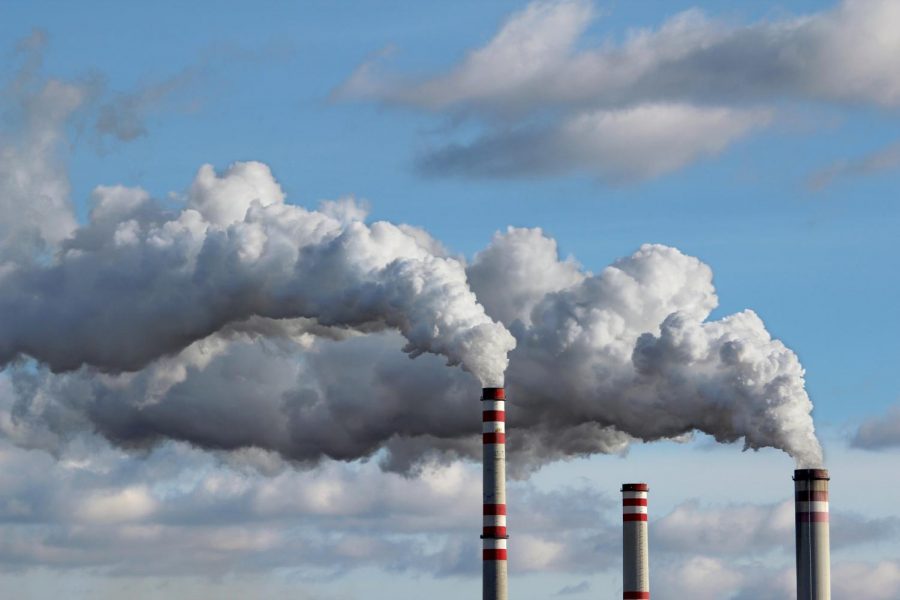COVID-19 Restrictions Reduce Harmful Gas Emissions
April 30, 2020
Amidst the chaos and anxiety of the COVID-19 pandemic, a little bit of good has emerged.
The COVID-19 pandemic has affected so many people around the world. Between making people stay home with their families to preventing people from going to work and school, the effects of the pandemic are widespread. However, the upside of the reduced activity of day-to-day life is that the pandemic has helped the environment become much healthier.
The air on Earth has been getting progressively less clean over the years. Air pollution is a combination of solid particles and gases in the air. Many factories around the world emit a lot of air pollution, which puts harmful chemicals into the air we breathe everyday. Due to the pandemic, the government is asking people to keep their distance from each other and suspend social gatherings, which leads to some factories closing down.
A reporter from the Center for Research on Energy and Clean Air in Helsinki, Finland found that “China’s carbon emissions were 25% lower in February compared to the same time last year.”
China has a large amount of nitrogen dioxide going into the air. If people breathe in these harmful gasses it can lead to bad coughs, weezing, reduced lung function, larger risk of asthma attacks, and a bigger risk of cancer. Due to the pandemic, nitrogen dioxide emissions have decreased by 42%, according to government monitoring stations.
Emma Newbuerger explains that “the northeastern U.S. has seen atmospheric levels of nitrogen dioxide air pollution decline by 30% in March compared with the same period last year in the wake of coronavirus lockdowns.”
Due to the nationwide stay-at-home and safer-at-home orders, less cars are on the road, which is a primary contributor to the decrease of harmful gas emissions. Today is the lowest nitrogen dioxide level, reports NASA’s satellite data record beginning in 2005.
Another benefit of people staying inside is that animals have more room and freedom. From herds of deer in Spain to monkeys in India, these animals are expanding their habitats and entering places where people live.
“Welsh town of Llandudno, a herd of wild mountain goats had their fun while villagers watched from their windows,” reports Hannah Sparks from the New York Post.
The COVID-19 pandemic has altered day-to-day routines for many people around the globe, but despite the surprises, good news continues to emerge from it.






































